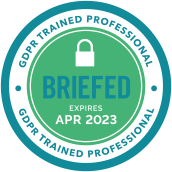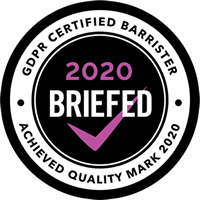Pupillage
Erskine Chambers offers up to two pupillages each year, each with an award of £80,000 split into a scholarship of £45,000 for the first six months of pupillage and £35,000 for the second six months of pupillage. Up to £20,000 of the award for the first six months may be drawn down prior to commencing pupillage.
Chambers will also cover the cost of any compulsory courses undertaken during pupillage and offers a generous rent and expense-free period to support junior tenants as they start in practice.
Chambers is a member of the Pupillage Gateway.
Applications for pupillage commencing in September/October 2026 are now closed.
Applications for pupillage commencing in October 2027 should be made via the Pupillage Gateway, which will open for applications in late 2025 with a deadline in early 2026.
Chambers offers up to two 12 month pupillages each year, each carrying an award of £80,000.
We consider candidates with both law and non-law degrees. A number of our recent tenants did not read law at university. It is not a pre-requisite to have studied company or insolvency law, although those candidates who have had the opportunity to do so are generally expected to have done so.
Amongst our members of Chambers we have individuals who have transferred from other professions, including former academics and solicitors.
It is not necessary to have undertaken a mini-pupillage in Chambers, although we encourage those with an interest in pupillage at these Chambers to apply to do so. Successful pupillage candidates who have not done a mini-pupillage may be invited to do a short, non-assessed mini-pupillage in Chambers in order to help them decide whether to take up a pupillage offer.
Our application process consists of two interviews, each of which involves the discussion of a case or a hypothetical legal problem. We usually interview 10 to 14 people in the first round of interviews, with about 5 to 7 going on to the second round. The cases and problems are chosen with a view to being fair to all applicants, regardless of their experience of law. The interviews seek to test, amongst other things, analytical skill and reasoning.
We aim to offer pupillage only to candidates whom we consider would have a realistic prospect of tenancy at the end of their pupillage. We do not make offers to pupils expecting them to compete with one another for limited tenancies: we hope that all our pupils will become tenants in due course.
Chambers is a member of the Pupillage Gateway.
Chambers will reimburse the reasonable travelling expenses of any candidate invited to interview.
We aim to reach a decision about tenancy approximately 9-10 months into pupillage. We always hope that any person offered a pupillage will become a tenant and our retention rate in recent years has been high.
Pupillage in Chambers is designed to provide both a general training for the commercial and chancery Bar, and an introduction to Chambers’ specialist areas. If a pupil is not taken on, we help to provide assistance in pursuing other routes.
Pupils who are taken on as tenants usually spend 3 to 6 months in the corporate department of a leading City firm before beginning their tenancy. Given Chambers’ role in City work, it is important that our new tenants have some practical insight into the practice of corporate law and related law in the City, and the commercial context in which their advice is likely to be sought in the future.
Following this initial process, our junior tenants divide their time roughly equally between their own work and being led by a more senior member of Chambers. The former consists mainly of small-scale litigation work, including contentious insolvency business, commercial and minority shareholder disputes and Companies Court applications, along with advisory work for smaller firms. This is important for building expertise, confidence and relationships with solicitors. Led work provides an opportunity to gain experience in the more valuable litigation and City advisory work which are the staples for more senior members of Chambers.
Our clerks emphasise the need to build a practice for junior tenants, and it is very rare for a junior tenant to spend months at a time doing only led work, or as second or third junior in very heavy litigation. Efforts are made to introduce new tenants to instructing solicitors, including by participation in the seminars and talks which we often give to law firms.
Junior tenants are not liable to pay rent for their room in Chambers during their first year in practice (after returning from any secondment). They are also not liable to pay Chambers expenses during the first year (again after secondment), or until receipts exceed £100,000 (whichever occurs first). In our experience junior members of Chambers have been able, relatively quickly, to establish a level of earnings which equals or exceeds that of their contemporaries in City law firms or other commercial or specialist sets.
Chambers offers a first-class working environment – we are housed in a modern building and all members have their own rooms. All members are designated a team of clerks to manage their day-to-day practice however all clerks (including the Senior Clerk) actively manage all members of Chambers practices. We regard Chambers as a friendly and tolerant set. The nature of our work allows flexibility in terms of holidays, working hours and working from home.
Chambers offers mini-pupillages to applicants who we consider would be realistic candidates for pupillage in the future. Mini-pupillages are for one or two days and do not involve a formal assessment. Chambers will reimburse reasonable travelling expenses for mini-pupils.
Mini-pupils generally sit with a junior member of Chambers, but commonly have the chance to see the work of more senior members (often attending Court or conferences). We also try to ensure that all mini-pupils have the opportunity to meet members of Chambers in an informal setting, to give them some feeling for the atmosphere of Chambers as well as its range of work.
As with pupillage, we accept applications from candidates who have not yet studied company law, including those studying on the law conversion course. However, as Chambers’ work is specialised and we receive a large number of applications, we only offer mini-pupillages to candidates who are in their final year studying law at university or who are currently undertaking the law conversion course (or who have already completed their academic legal studies).
You can submit your application throughout the year with the following deadlines for application:
- For a mini-pupillage between October 2025 and January 2026 (including those candidates who wish to undertake a mini-pupillage prior to the Pupillage Gateway in 2025), the deadline for applications is 19 September 2025.
- For a mini-pupillage between February 2026 and April 2026, the deadline for applications 31 December 2025.
- For a mini-pupillage between May 2026 and July 2026, the deadline for applications is 31 March 2026.
All applications submitted within each relevant period will be considered shortly after each deadline and you will receive a response thereafter.
Mini-pupils are hosted in Chambers; we do not offer virtual mini-pupillages.
Applications for mini-pupillage should be made by short covering letter and CV (including a breakdown of examination grades by subject) in a single PDF file which contains your name. Applications by email are preferred, and should be sent to clerks@erskinechambers.com
What is an average day for a pupil?
There is no “average day”, and that’s one of the reasons why pupillage at Erskine Chambers is such an enriching experience. A pupil might spend one day observing the latest proceedings in the Supreme Court, and the next day assisting a more junior barrister with a trial in the County Court. As a pupil, I was fully involved in my supervisor’s practice from day one. A typical task was to produce the first draft of a document that my supervisor would work on, and we would then compare the differences. Pupils are also fully involved in Chambers’ life and are encouraged to attend Chambers’ tea (which occurs daily) whenever possible.
What has surprised you about pupillage?
The incredible breadth of work that I have seen. Rarely are two things the same, there is a great variety of tasks that involve different skills and areas of knowledge. On top of that, I’ve seen and been involved in very complex, high-value work from a very early stage of pupillage, which I wasn’t necessarily expecting.
What has been the highlight so far?
The best feeling as a pupil is coming up with a genuinely good point, and then seeing it being run. One of my arguments ultimately ended up being approved in a High Court judgment – I’m still fairly bemused by that.
A more general highlight of being in a specialist set like Erskine is how quickly you begin to build expertise across Chambers’ practice areas. It’s very satisfying to identify niche points in the papers which you probably wouldn’t notice if you hadn’t been immersed in Chambers’ specialisms.
Advice to other people applying for pupillage?
Do give some thought as to why you want to undertake pupillage in a Chambers with our specialisms. The work is intellectually challenging, complex and often technical (although you are not expected to have any technical knowledge before joining)! At the same time, pupillage is an intense learning experience, so be sure to display an open mind towards all of Chambers’ practice areas and a willingness to work hard and get stuck in to everything you are given to do.




